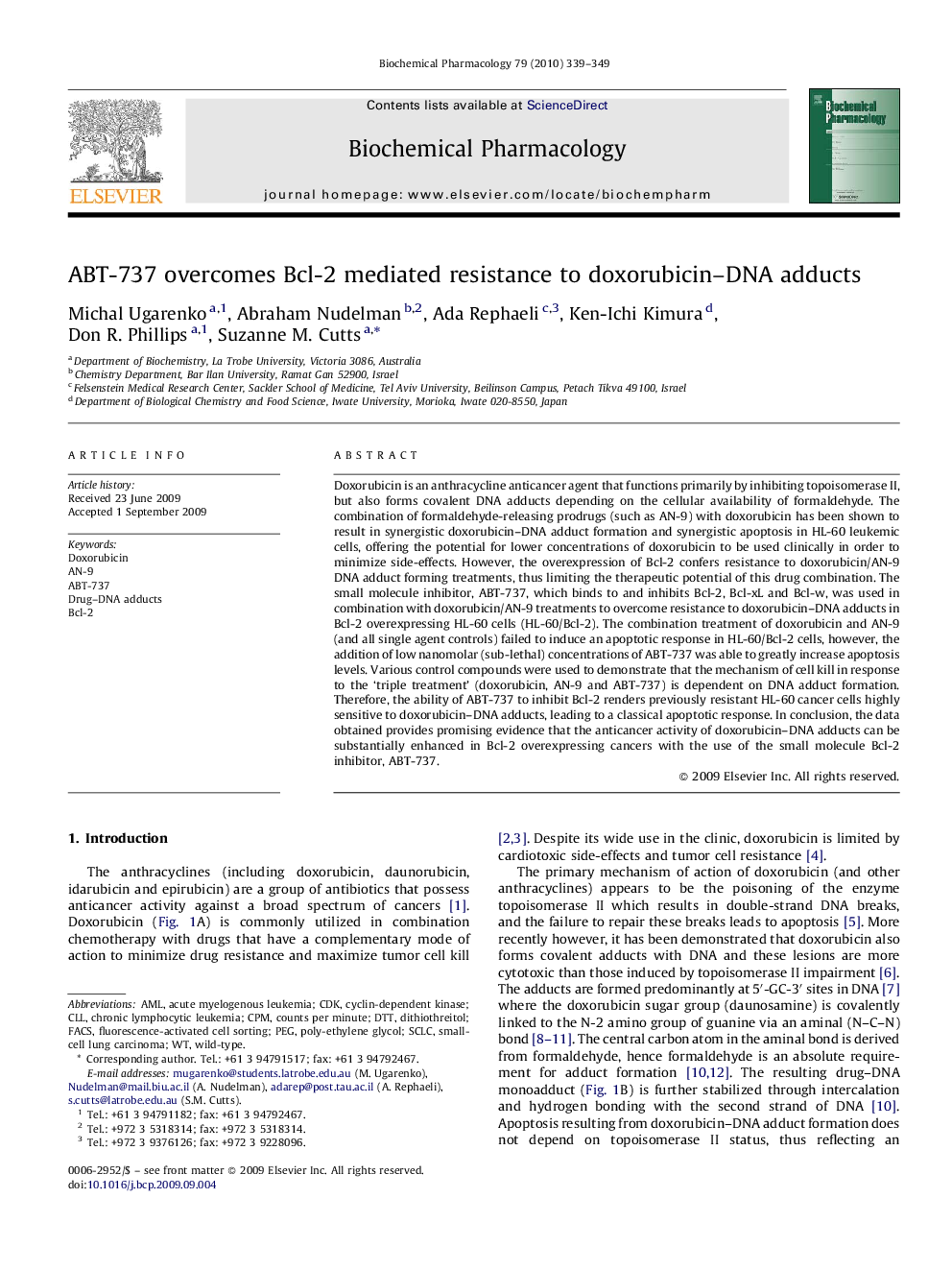| کد مقاله | کد نشریه | سال انتشار | مقاله انگلیسی | نسخه تمام متن |
|---|---|---|---|---|
| 2513735 | 1118432 | 2010 | 11 صفحه PDF | دانلود رایگان |

Doxorubicin is an anthracycline anticancer agent that functions primarily by inhibiting topoisomerase II, but also forms covalent DNA adducts depending on the cellular availability of formaldehyde. The combination of formaldehyde-releasing prodrugs (such as AN-9) with doxorubicin has been shown to result in synergistic doxorubicin–DNA adduct formation and synergistic apoptosis in HL-60 leukemic cells, offering the potential for lower concentrations of doxorubicin to be used clinically in order to minimize side-effects. However, the overexpression of Bcl-2 confers resistance to doxorubicin/AN-9 DNA adduct forming treatments, thus limiting the therapeutic potential of this drug combination. The small molecule inhibitor, ABT-737, which binds to and inhibits Bcl-2, Bcl-xL and Bcl-w, was used in combination with doxorubicin/AN-9 treatments to overcome resistance to doxorubicin–DNA adducts in Bcl-2 overexpressing HL-60 cells (HL-60/Bcl-2). The combination treatment of doxorubicin and AN-9 (and all single agent controls) failed to induce an apoptotic response in HL-60/Bcl-2 cells, however, the addition of low nanomolar (sub-lethal) concentrations of ABT-737 was able to greatly increase apoptosis levels. Various control compounds were used to demonstrate that the mechanism of cell kill in response to the ‘triple treatment’ (doxorubicin, AN-9 and ABT-737) is dependent on DNA adduct formation. Therefore, the ability of ABT-737 to inhibit Bcl-2 renders previously resistant HL-60 cancer cells highly sensitive to doxorubicin–DNA adducts, leading to a classical apoptotic response. In conclusion, the data obtained provides promising evidence that the anticancer activity of doxorubicin–DNA adducts can be substantially enhanced in Bcl-2 overexpressing cancers with the use of the small molecule Bcl-2 inhibitor, ABT-737.
Bcl-2 overexpressing HL-60 cells are resistant to doxorubicin–DNA adduct forming treatments. The addition of the Bcl-2 inhibitor ABT-737 was able to overcome this resistance and induce apoptosis.Figure optionsDownload as PowerPoint slide
Journal: Biochemical Pharmacology - Volume 79, Issue 3, 1 February 2010, Pages 339–349